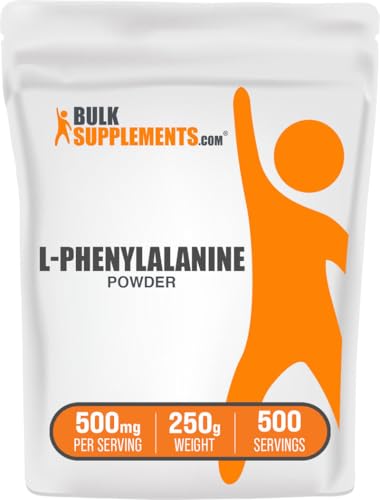L-Phenylalanine & Liver Health: What You Need to Know
Quick Summary: Research in rats suggests that a dietary supplement called nucleotides can help protect the liver from alcohol damage. This study found that nucleotides improved liver function and increased levels of the amino acid L-Phenylalanine.
How Nucleotides Help Your Liver
This study looked at how a supplement called nucleotides affected rats with liver damage caused by alcohol. The researchers found that nucleotides:
- Reduced liver inflammation and damage
- Improved liver enzyme levels, which are markers of liver health
- Helped the liver process fats and cholesterol better
- Reduced oxidative stress, which can damage cells
Study Details
- Who was studied: Male rats
- How long: 28 days
- What they took: Some rats were given alcohol, and some were given alcohol plus nucleotides in their diet. The nucleotides were given at two different doses.
What This Means For You
This research is in its early stages, and more studies are needed. However, the findings suggest that nucleotides may have a protective effect on the liver. The study also showed that nucleotides increased levels of L-Phenylalanine.
-
L-Phenylalanine: This amino acid is important for making proteins and other important substances in your body. It's also a building block for other important amino acids, like tyrosine.
-
Liver Health: If you drink alcohol, it's important to be mindful of your liver health. Talk to your doctor about ways to support your liver, such as a healthy diet and limiting alcohol consumption.
Study Limitations
This study was done on rats, so the results may not be the same for humans. More research is needed to confirm these findings and understand how nucleotides and L-Phenylalanine might affect human liver health.
Technical Analysis Details
Key Findings
This 2016 rat study found that dietary nucleotides supplementation (0.04% and 0.16% of the diet) reduced liver damage caused by chronic alcohol exposure. Key outcomes included reversed hepatocyte steatosis, normalized liver enzymes (ALT, AST), improved lipid metabolism (lowered cholesterol and triglycerides), and reduced oxidative stress markers. Metabolomics revealed nucleotides reversed alcohol-induced elevations in bile acids (e.g., glycocholic acid) and lipids (e.g., stearic acid, phosphatidylcholine) while increasing amino acids like L-phenylalanine, L-leucine, and their derivatives.
Study Design
The study used 40 male Wistar rats divided into five groups (n=8/group): normal control, alcohol control (50% alcohol v/v), isocaloric dextrose control, and two nucleotides groups (0.04% and 0.16% nucleotides in the diet). Alcohol or dextrose was administered for 28 days. Liver injury was assessed via blood biomarkers (e.g., ALT, AST), oxidative stress markers (e.g., SOD, MDA), histopathology, and metabolomics using UPLC-Q-TOF-MS.
Dosage & Administration
Nucleotides were supplemented at 0.04% (0.4 g/kg diet) and 0.16% (1.6 g/kg diet) in the basal diet. Alcohol was given as 50% (v/v) via gavage, and dextrose was administered isocalorically to match alcohol calories.
Results & Efficacy
- Liver enzymes: Alcohol increased ALT (p < 0.01) and AST (p < 0.05), which were reduced by nucleotides (0.16% group: ALT 48.3 ± 3.8 U/L vs. alcohol control 72.1 ± 5.4 U/L; p < 0.01).
- Lipids: Total cholesterol (alcohol: 2.8 ± 0.3 mmol/L vs. control: 1.9 ± 0.2 mmol/L; p < 0.01) and triglycerides (alcohol: 2.1 ± 0.4 mmol/L vs. control: 1.3 ± 0.2 mmol/L; p < 0.05) were elevated in alcohol groups but normalized with nucleotides.
- Oxidative stress: Alcohol decreased SOD activity (p < 0.01) and increased MDA (p < 0.05), both improved by nucleotides.
- Metabolomics: Nucleotides reversed alcohol-induced bile acid and lipid increases (p < 0.05–0.01) and raised L-phenylalanine levels (0.16% group: 1.2-fold increase vs. alcohol control; p < 0.05).
- Histopathology: Nucleotides reduced
Original Study Reference
Dietary Nucleotides Supplementation and Liver Injury in Alcohol-Treated Rats: A Metabolomics Investigation.
Source: PubMed
Published: 2016
📄 Read Full Study (PMID: 27043516)



